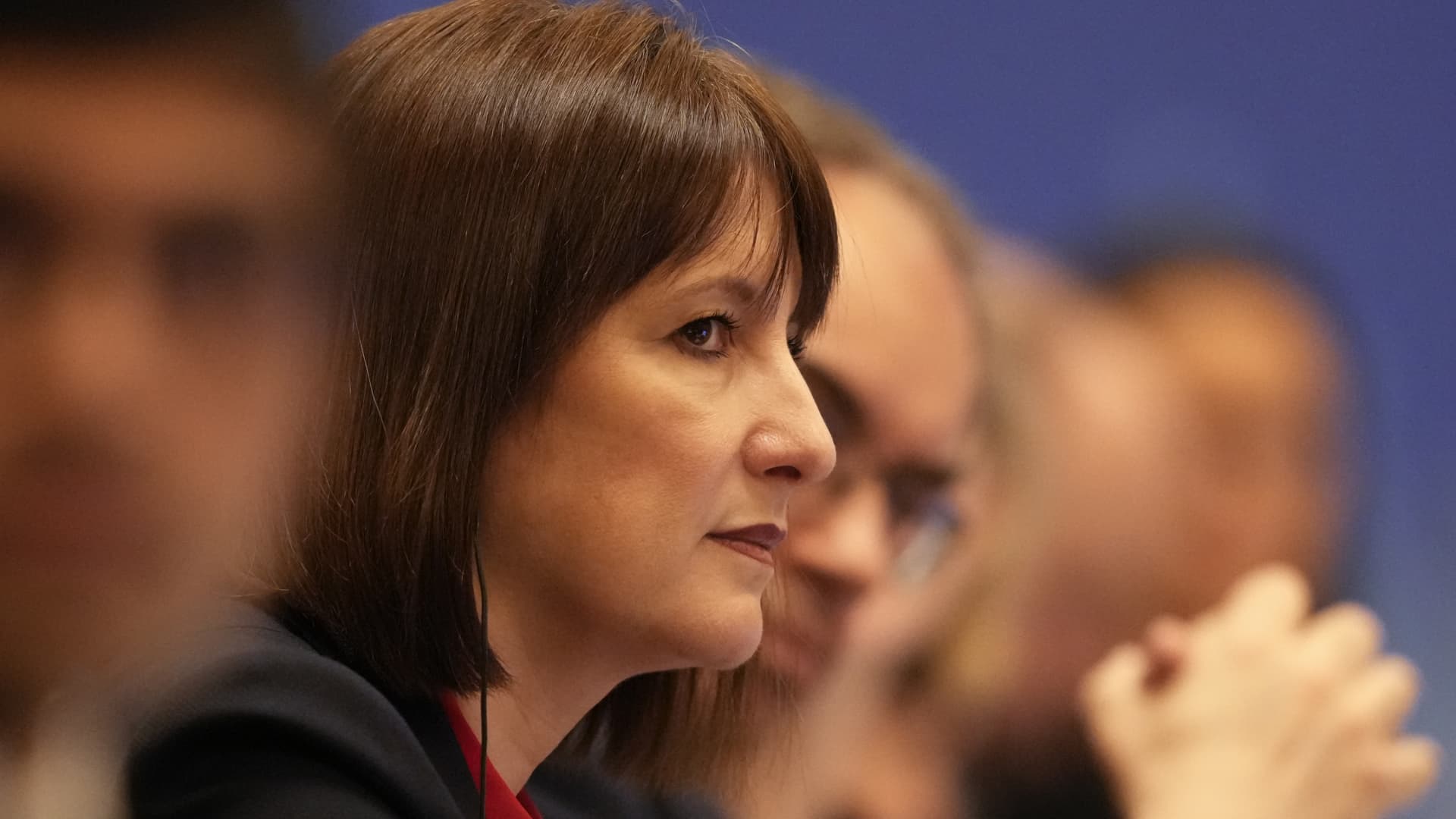British Chancellor of the Exchequer Rachel Reeves listens during the 11th China-UK Economic And Financial Dialogue on January 11, 2025 in Beijing, China.
Pool | Getty Images News | Getty Images
The U.K. is “not part of the problem” when it comes to “persistent” trade deficits that President Donald Trump wants to tackle, the country’s finance minister told CNBC Wednesday.
“I do understand that President [Donald] Trump is concerned about countries that are running large and persistent surpluses on the trade balance with the U.S. That’s not the case for the U.K.,” the U.K.’s Chancellor Rachel Reeves told CNBC’s Andrew Ross Sorkin.
“We are not part of the problem here. So we, the U.K., increased trade with President Trump last time he was in office,” she said, speaking to CNBC on the sidelines of the World Economic Forum in Davos, Switzerland.
President Trump is roundly irritated by the U.S.’ trade deficits with many of its partners, but trade with the U.K. has generally been more balanced, see-sawing between surplus and deficit in recent years.
The latest U.K. trade data shows that, in the second quarter of 2024, the U.K. had a trade surplus of £4.5 billion ($5.5 billion) with the U.S. in goods.
The U.K.’s finance minister is in Davos this week, trying to attract global investment into the British economy. The trip comes after Reeves has come under sustained pressure since unveiling the Treasury’s spending and taxation plans last fall.
The package of measures presented in the ‘Autumn Budget’ centered on increasing the tax burden on British businesses and has drawn widespread criticism from industry leaders, who said the move would stifle investment, jobs and growth.
Recent data releases, including lower-than-expected growth data for November and higher-than-expected government borrowing costs in December, have also contributed to ongoing discomfort in the Treasury.
The U.K. found itself in more hot water at the start of the year, as the interest rate that investors demanded to hold U.K. bonds — known as gilts — rose sharply, reflecting market jitters over the U.K’s economic prospects.
Reeves has held fast to her fiscal plans and has said growing the U.K. economy is her top priority.
Donald Trump’s election last November represented another headache for the center-left Labour government, with a number of ministers, such as Foreign Minister David Lammy, making less-than-flattering comments about Trump in the past.
Unnatural bedfellows when it comes to political ideology, Prime Minister Keir Starmer, Reeves and the British establishment are looking to build good relations with the White House, particularly amid the potential threat of universal trade tariffs.
While China, Mexico, Canada and the EU are seen as the top targets for Trump’s trade tariffs, however, the U.K. might escape relatively unscathed, economists believe.





